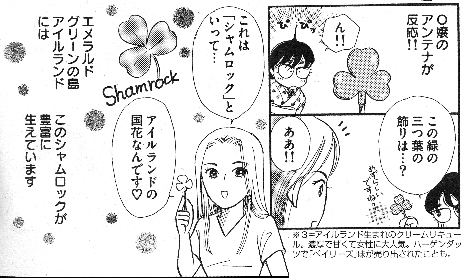drawn together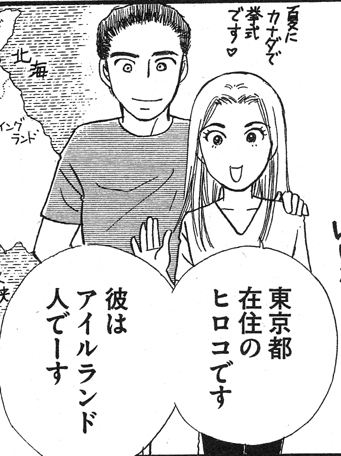
If you live in
The piece is part of a series about Japanese women that are married (or about to be married) to foreign men. The writer visits a different inter-racial couple each month and talks to them about their lives, how they met, and how they are overcoming their deep cultural divide. Most importantly, they ask about how a demure Japanese lass who grew up with sushi and fillet of whale can manage to cook meals that will satisfy this alien being.
The Japanese people are deeply interested in the foreigners living among them. Sometimes this interest manifests as an earnest desire to learn about western ways of thinking. At other times (or in other individuals) it shows up as a deep-seated hatred, but by and large the interest in foreigners is neither as deep or as sinister as either of these. Most of the time, we are simply curios.
my darling is a foreigner
Judy treats the foreigners in the comic as more than curios, but it falls short of a genuine interest in our way of thinking. As a manga that seems to be geared primarily towards young housewives, Judy does convey a genuine in interest in how we cook. Each installment features a recipe or two from the motherland. Hiroko has been whipping up dishes from mum's Irish cookbook for the past while, so the readers this month are being treated to recipes for Guinness stew and Irish brown bread.
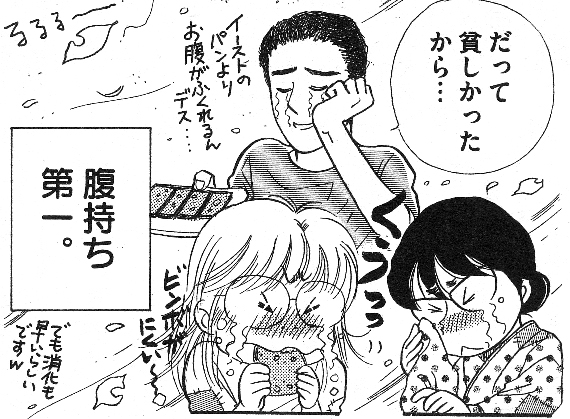 Comics and TV programmes that
examine the lives of bi-racial couples in Japan is almost a
genre now. It apparently started a few years back with the
popularity of a manga called "Daringu ha Gaikokujin" (My Darling is a
Foreigner). The comic portrayed the life of a woman who was
married to a kilt-wearing, bagpipe-playing hubby. Since then, there
have been comics and TV shows featuring foreign better-halves from
all over the world. The most recent popular incarnation of
this phenomenon is a TV programme called "Okusan ha Gaikokujin" (My
Wife is a Foreigner). As you can tell by the similarity in titles,
there isn't a lot of variation in the format of these diversions... but
when you've hit on a formula that works, there really isn't any reason
to mess with it.
Comics and TV programmes that
examine the lives of bi-racial couples in Japan is almost a
genre now. It apparently started a few years back with the
popularity of a manga called "Daringu ha Gaikokujin" (My Darling is a
Foreigner). The comic portrayed the life of a woman who was
married to a kilt-wearing, bagpipe-playing hubby. Since then, there
have been comics and TV shows featuring foreign better-halves from
all over the world. The most recent popular incarnation of
this phenomenon is a TV programme called "Okusan ha Gaikokujin" (My
Wife is a Foreigner). As you can tell by the similarity in titles,
there isn't a lot of variation in the format of these diversions... but
when you've hit on a formula that works, there really isn't any reason
to mess with it.
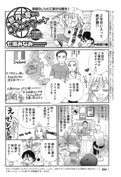 |
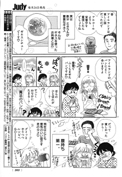 |
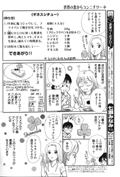 |
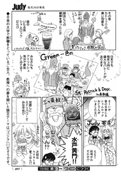 |
